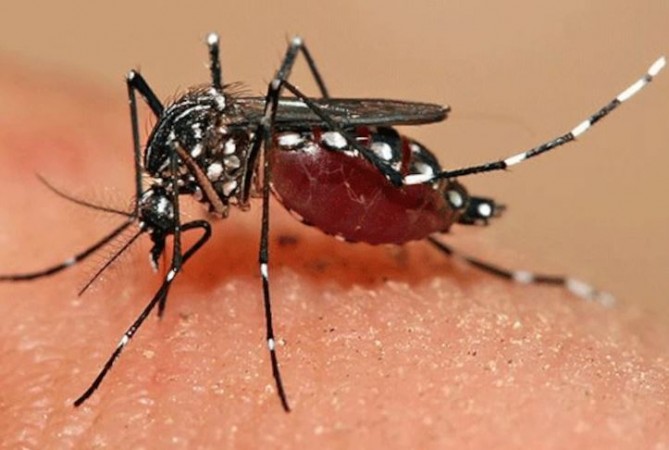
Dengue fever, a mosquito-borne viral infection, is currently spreading rapidly across various cities in India, including Bangalore and Delhi. The onset of the rainy season exacerbates this spread due to the increased breeding of mosquitoes, particularly the Aedes species, which are responsible for transmitting the dengue virus.
Symptoms of Dengue Fever
The symptoms of dengue fever typically manifest around four to six days after a person has been bitten by an infected mosquito. These symptoms can last up to ten days and may include:
High Fever: Dengue fever is characterized by a sudden onset of high fever, often reaching up to 104°F (40°C). This fever is one of the hallmark signs of dengue infection.
Severe Headache: Individuals with dengue fever often experience intense headaches, which can be debilitating.
Pain Behind the Eyes: Pain and discomfort behind the eyes, known as retro-orbital pain, are common symptoms of dengue infection.
Muscle and Joint Pain: Dengue fever causes severe muscle and joint pain, often described as a deep ache in the muscles and joints.
Fatigue: Profound fatigue and weakness are typical during the acute phase of dengue fever.
Nausea and Vomiting: Many people with dengue fever experience nausea, vomiting, and sometimes diarrhea.
Skin Rash: A rash may appear on the skin of individuals infected with dengue fever. It is usually a red, patchy rash that can be itchy.
Bleeding: In severe cases, dengue fever can lead to bleeding from the nose or gums, easy bruising, or other types of bleeding.
Preventive Measures Against Dengue Fever
Preventing dengue fever primarily involves reducing the risk of mosquito bites and eliminating mosquito breeding sites. Here are effective preventive measures:
Use Mosquito Repellent: Apply mosquito repellent containing DEET, picaridin, or oil of lemon eucalyptus on exposed skin.
Wear Protective Clothing: When outdoors, wear long-sleeved shirts, long pants, socks, and closed shoes to minimize exposed skin.
Mosquito Nets and Screens: Use mosquito nets while sleeping and ensure windows and doors are screened to prevent mosquitoes from entering living spaces.
Eliminate Breeding Sites: Regularly empty and clean containers that hold water, such as flower pots, bird baths, and coolers. Mosquitoes breed in stagnant water, so reducing these sites around your home is crucial.
Cover Water Storage Containers: Ensure that water tanks, barrels, and drums used for water storage are covered tightly to prevent mosquitoes from laying eggs.
Community Efforts: Encourage community efforts to clean up garbage and remove discarded items that can collect rainwater and become mosquito breeding grounds.
Seek Medical Advice Promptly: If you or someone you know develops symptoms of dengue fever, seek medical attention promptly. Early diagnosis and proper medical care can prevent complications and reduce the severity of the illness.
In conclusion, dengue fever is a serious health concern, especially during the monsoon season when mosquito populations increase. Understanding the symptoms and taking proactive measures to prevent mosquito bites are essential steps in controlling the spread of dengue fever. By implementing these preventive measures and staying vigilant about symptoms, individuals can protect themselves and their communities from this potentially debilitating disease.
By raising awareness and promoting effective prevention strategies, we can collectively combat the spread of dengue fever and safeguard public health.
Mass Doctors Strike in England Amid NHS Crisis Ahead of UK General Election
Hydration Alert: Five Foods and Drinks to Avoid When Dehydrated
A Sneak Peek into Apple Watch Series 10: Bigger Display, Advanced Health Tech